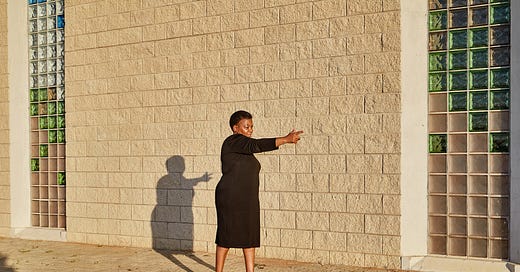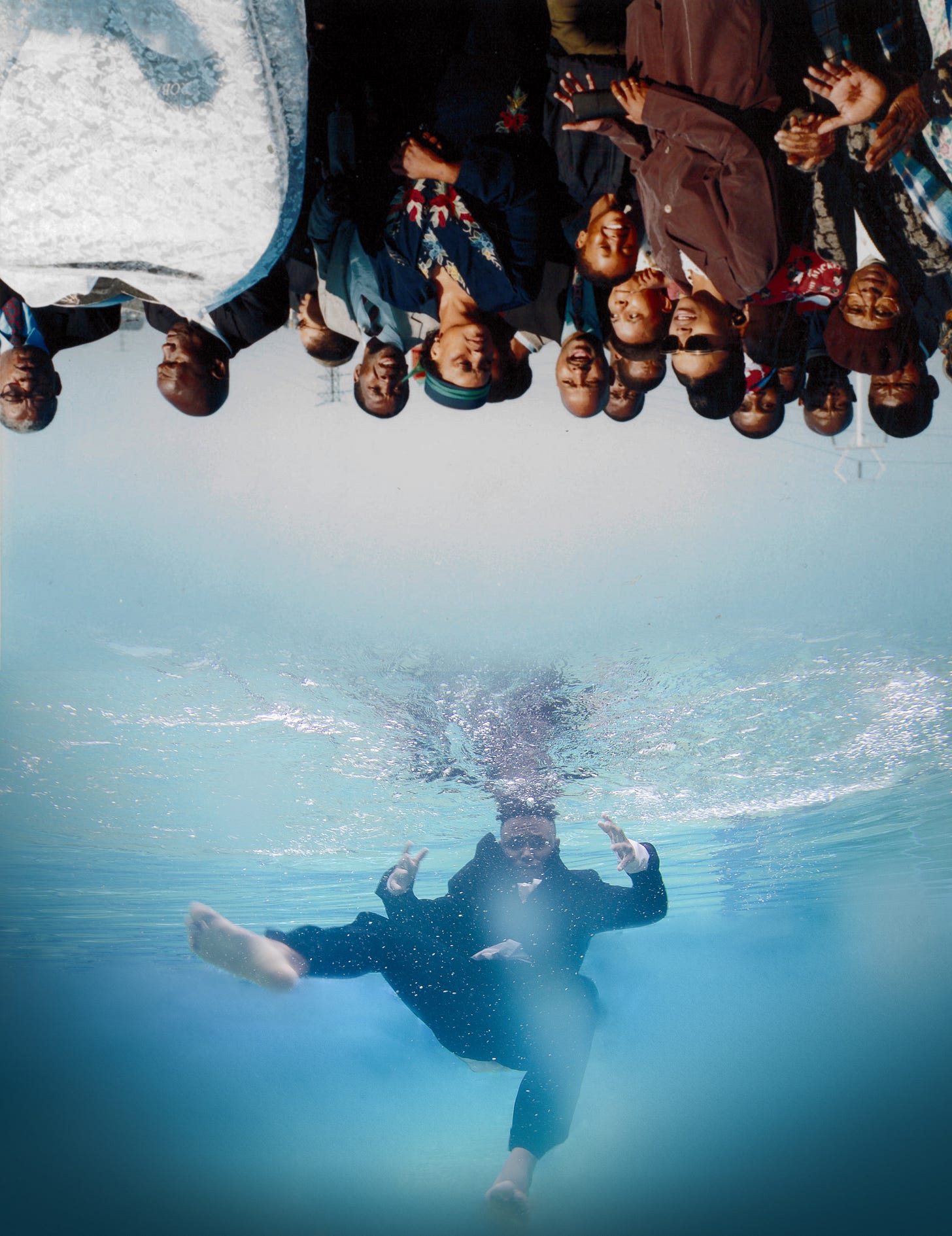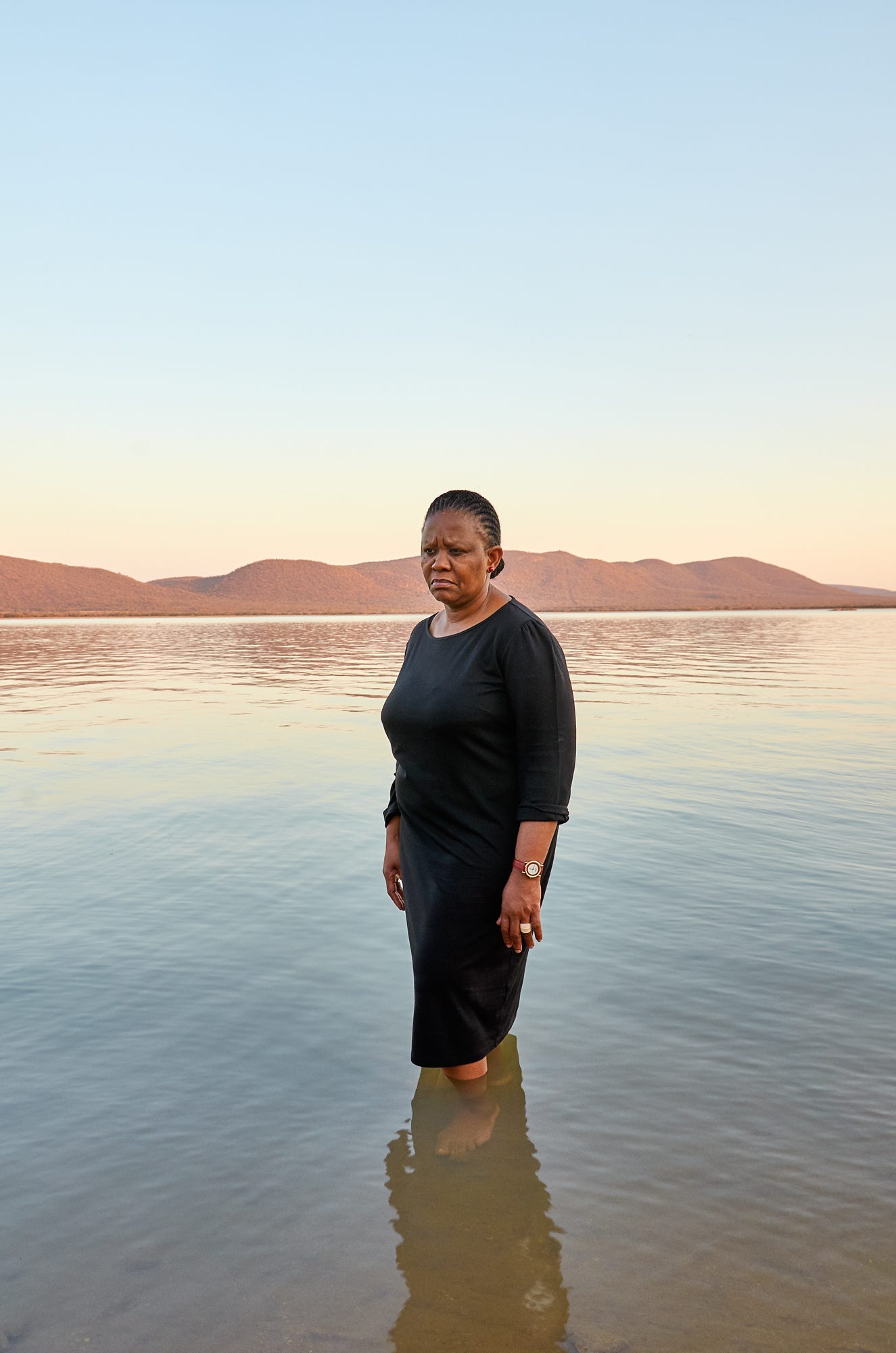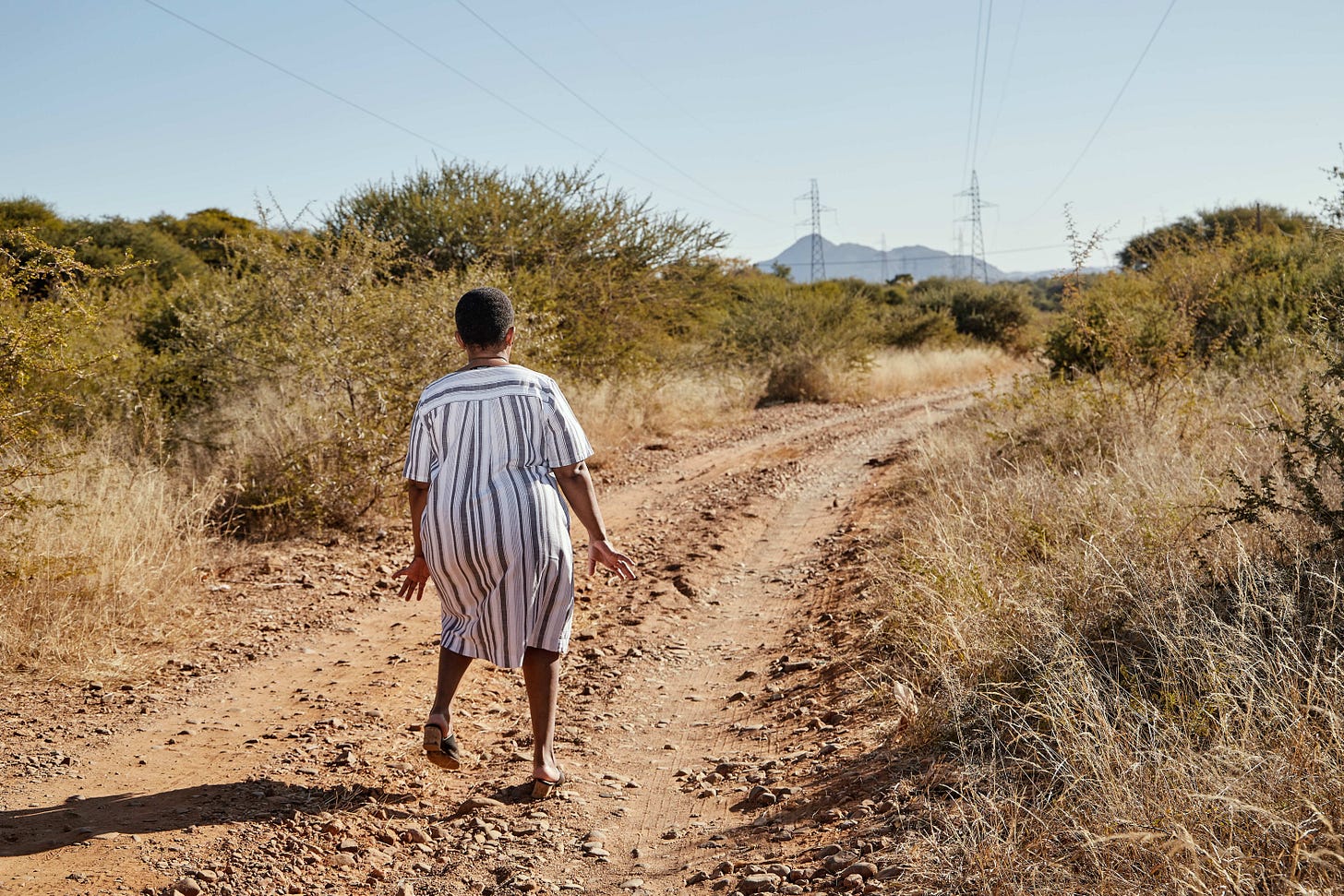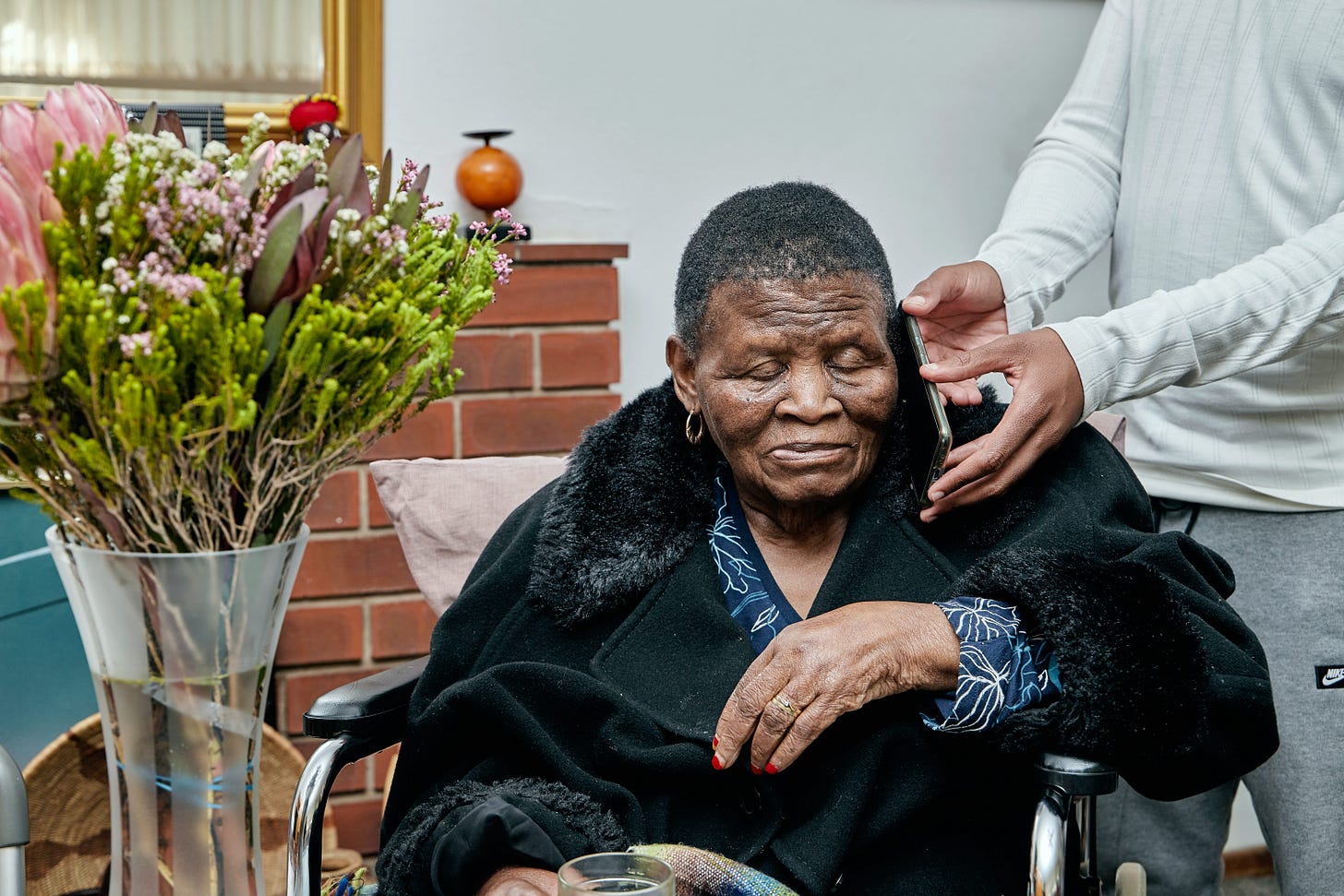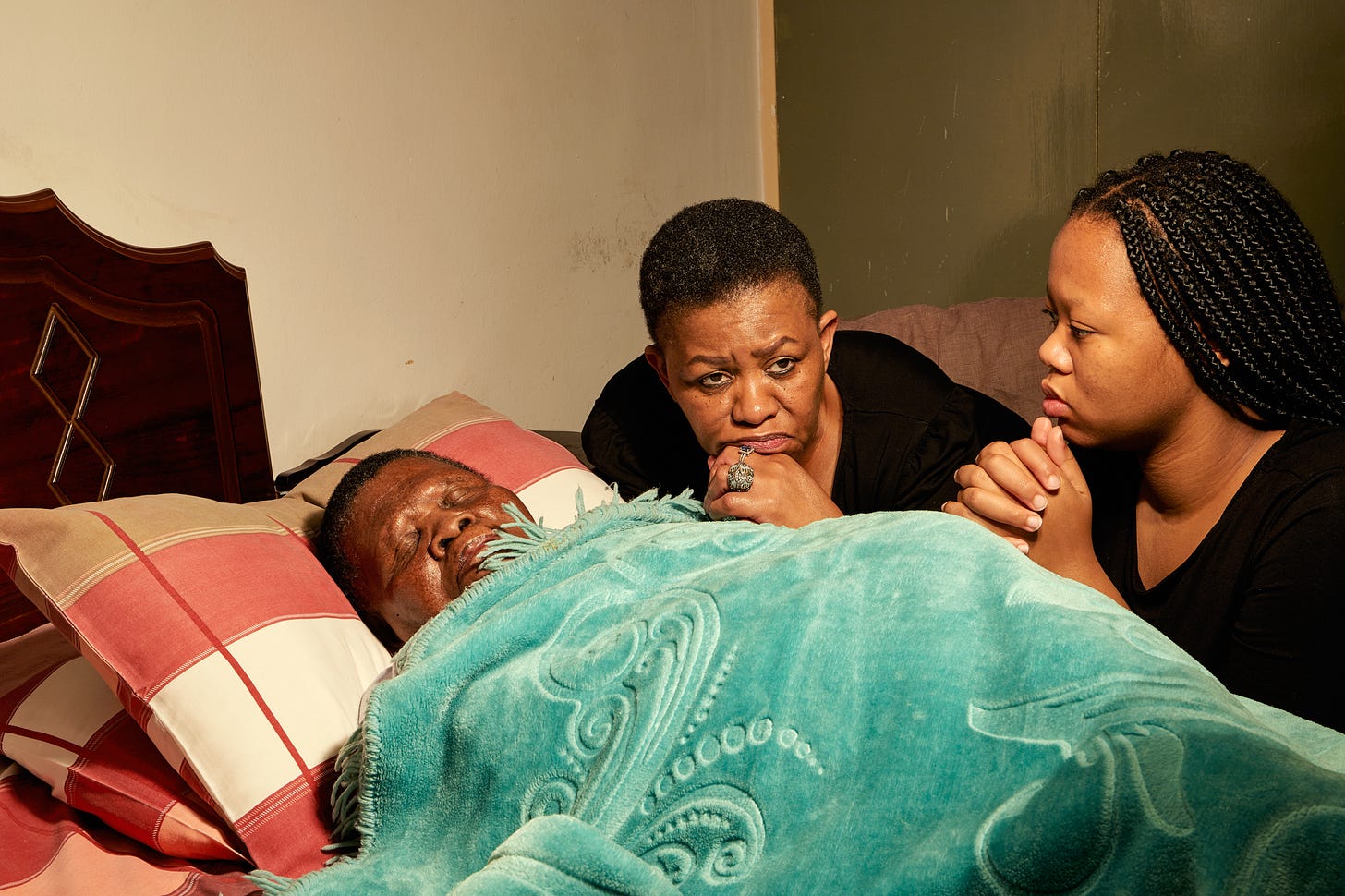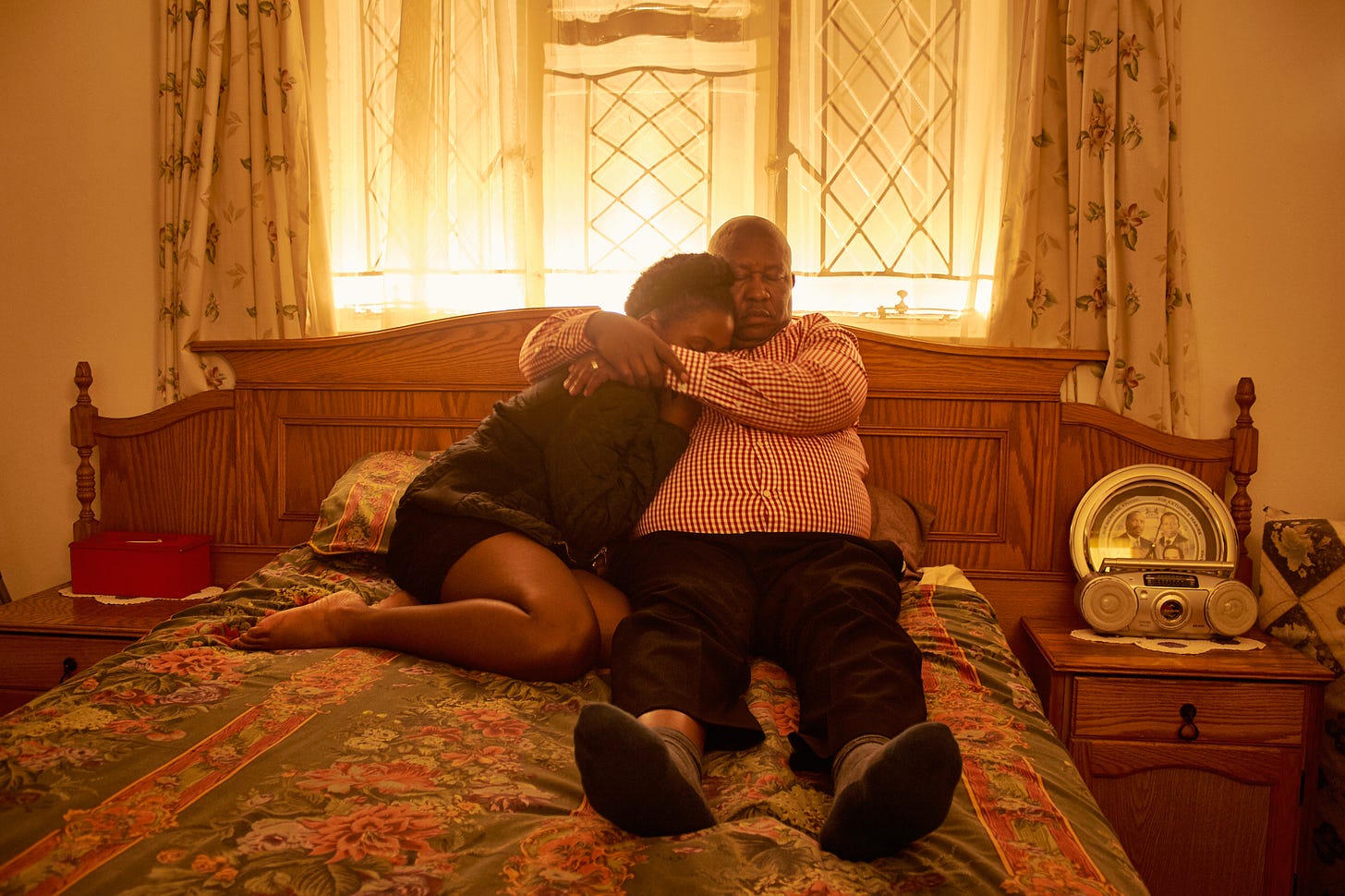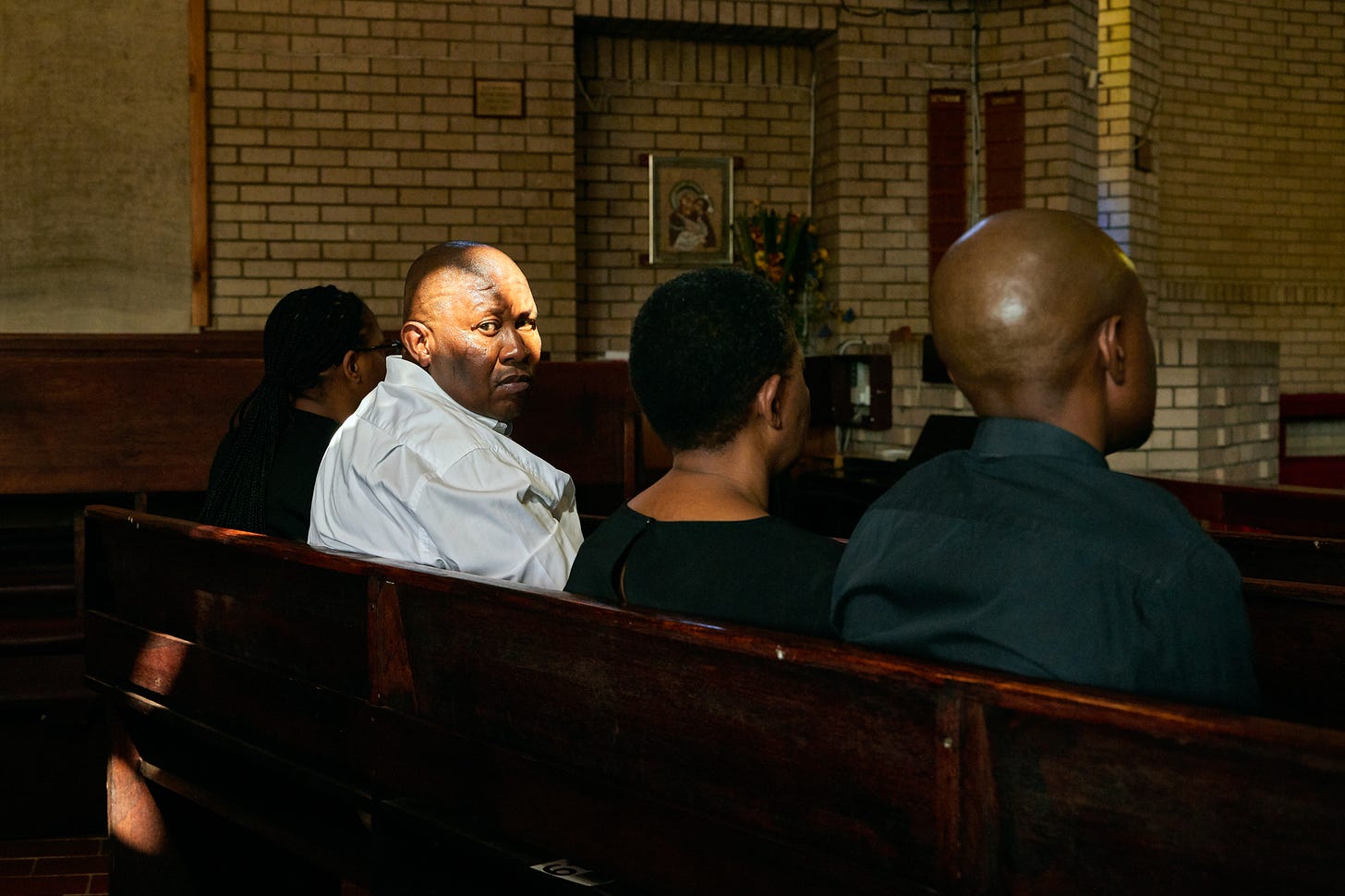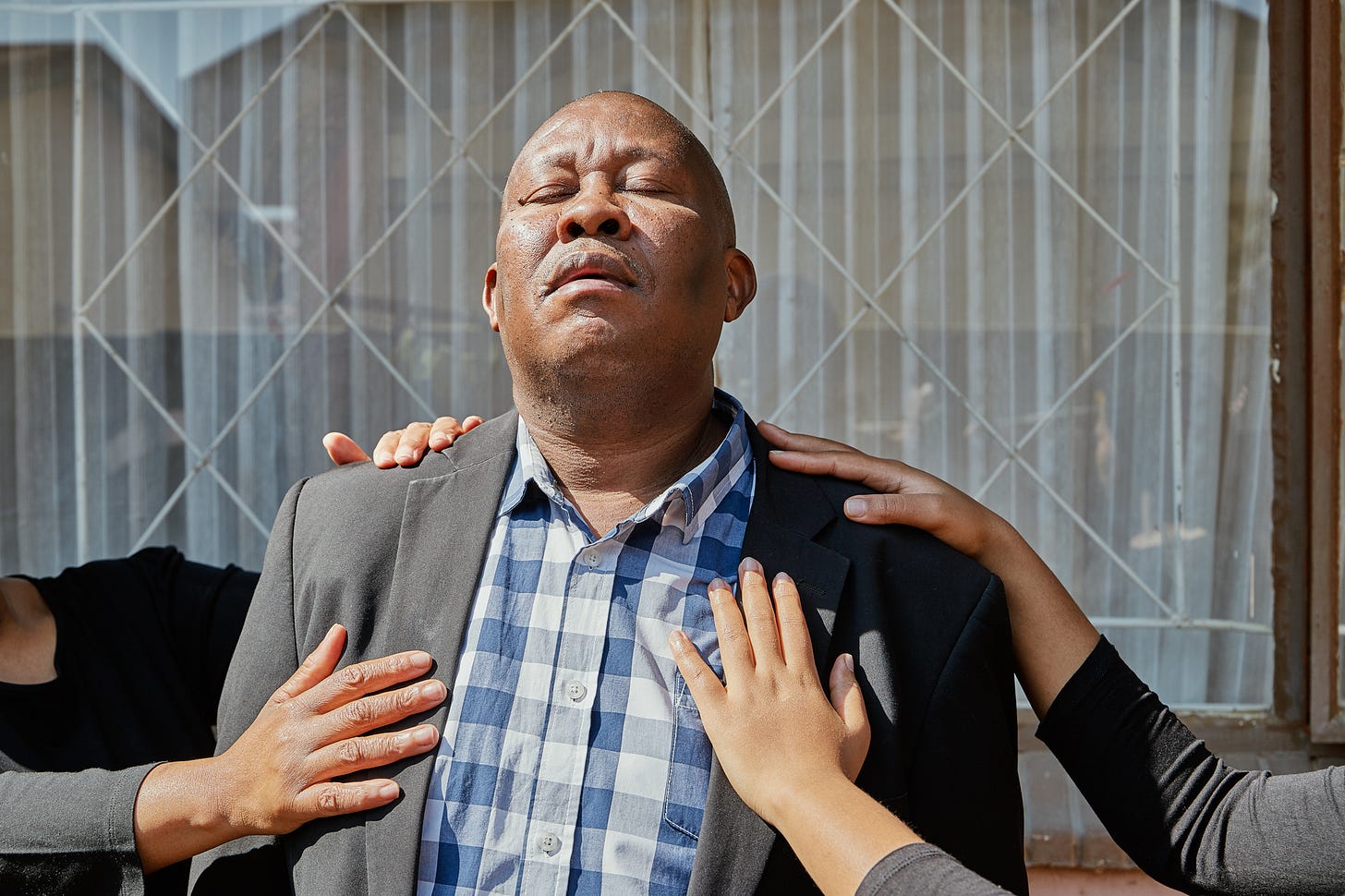The typical photograph in this series shows a person in the middle of an activity. Those activities, as Thero Makepe explains, are often re-enactments of his family’s past. We can assume correctly that these pictured individuals are members of his family. They perform a version of themselves, at his bidding, for the camera.
These photographs are of two kinds: there are some in which the performance is peripheral, and the mid-activity gesture does not seem to be staged, say the photo of the wheelchair-bound matriarch with a phone held to her ear. The other kind depicts something far less usual, such as the man with closed eyes held on both sides by pairs of hands. But this categorization is somewhat slippery when other photos are looked at—see, for instance, the man’s accusatory gaze as a group sits on a pew. Each photograph was taken with the knowledge of those in the frame, suggesting how the pictures are pitched at the same theme. Hence the question Makepe’s work poses has little to do with whether each person participated in a decided or undecided manner. It is more cogent to consider how the varying poses, ease of manner, and confidence of gestures point to a collective identity.
There is no easy way to get a cohesive story of one’s family history, and it is surely not easier to make the story into symbolic images. Even when the images are made, viewers like you and I run a risk of knowing nothing of how to parse the code. What meaning does the river hold for the woman who is ankle-deep in it? Along what path does she move with raised feet? Yet, the literal story of a family can become abstract representations of lived experience.
We can make meaning of abstraction. In one ordering of these pictures, this is a story of mourning a matriarch, being with her as she transits to the afterlife, then sitting beside her empty bed. Every touch is a consolatory act. But this imagined narrative is only possible because we can recall one such room, one such chapel, a stifled cry. We can recognize the various griefs that follow loss of any kind, be it of person or land.
— Emmanuel Iduma
Listen to Thero Makepe discuss his project.
Thero Makepe is an artist born in Gaborone, Botswana. Currently living and working in Gaborone, Cape Town and Johannesburg, Makepe completed his Bachelor of Fine Art (BFA) with distinction at the University of Cape Town, majoring in photography. See more of Thero Makepe’s work on Tender Photo.
TENDER PHOTO is a collaborative digital archive and publishing platform of contemporary African photography, edited by Emmanuel Iduma. Our aim is to use photography to engage with life on the African continent. We publish narratives about the people, places, and events pictured in photographs, contributing to nuanced and layered perceptions. Every Wednesday we feature a photograph, a short caption about it, and a statement from the photographer. Last year, we published commentaries or photo-essays in response to photographs previously featured on the newsletter, including CORRESPONDENCES, CONCORDANCE, KINDRED, INDEX, and AFFINITIES.
This is the fourth edition of a series dedicated to the 5 photographers featured in Process Projected, Amsterdam. Read last week’s feature on Lidudumalingani.
Thank you for reading. If this newsletter was shared with you, consider subscribing, or forward to a friend. Please whitelist the newsletter to ensure you never miss it.

